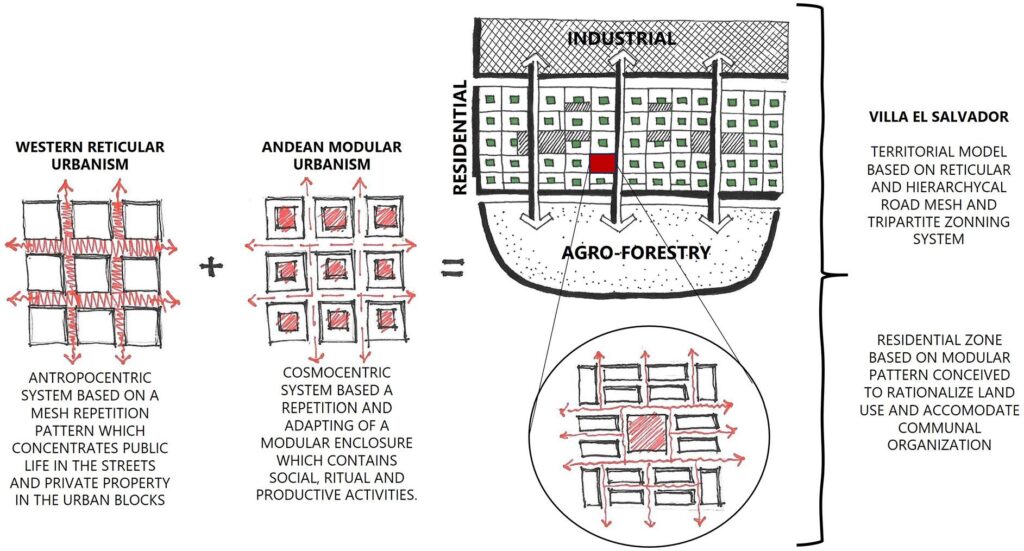
Jean-Paul Kaiser-Salas, Pedro Hurtado-Valdez, and Nathalie Di Florio-Tataje examine city construction in
“Modular Urban Design in Villa El Salvador (Lima, Peru) as a Contemporary Blend of Western and Andean Urban Heritages.”
In the context of a military dictatorship based on socialist ideology, Villa El Salvador emerged in 1971 in the south of Lima due to an internal migration process that began thirty years earlier and a collective effort by the community to achieve self-governance, which was facilitated by a modular urban structure. This urban phenomenon has not yet received the necessary reflection to understand the processes shaping its layout. Herein, the degree to which Villa El Salvador represents a contemporary blend of two urban traditions is critically explored, integrating perspectives from Western and Andean urbanism.

